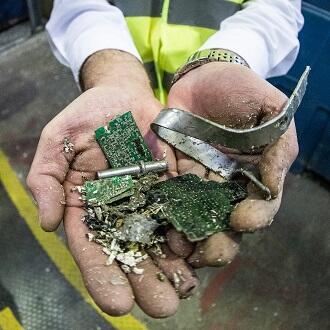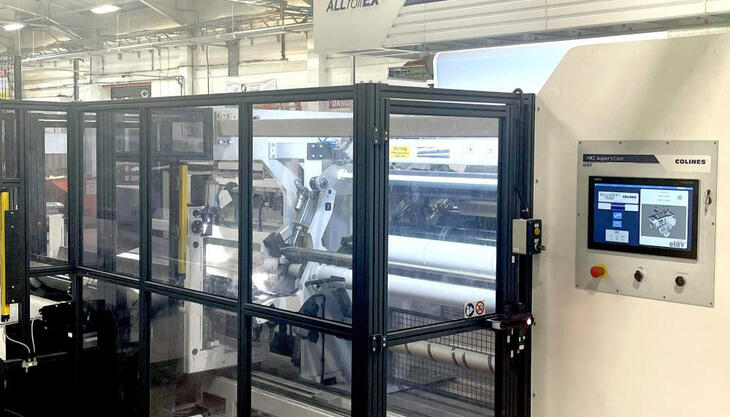
Metal contamination is an issue for any company producing plastics products or managing plastic waste. In virgin plastic manufacturing processes, metal damages processing equipment and the quality of the end-product. Recycled plastic commonly has both ferrous and non-ferrous metal contamination, and removal is vital to enable the reuse of the waste material.
The Bunting product portfolio includes a wide range of magnetic separators and metal detectors to detect and remove any metal. The FF and HF Drawer Filter Magnets are the most commonly used magnetic separators in the plastics sector. They are available with standard and manual-clean (MSC) designs, all utilising the highest strength Neodymium Iron Boron (Rare Earth) Magnets. In operation, plastic beads or shredded plastic waste falls through the Drawer Filter under gravity with ferrous metal contamination attracted and held onto the surface of the strong magnets.
The new Hi-Temp Drawer Filter Magnet Model FF350, recently launched in Europe, enables processing material at the higher temperatures experienced when mounted directly to the inlet of injection moulding machines. High heat is damaging to standard rare earth magnets and the new design maintains magnetic strength at temperatures up to 175°C. There are also changes to the housing, window and access fixings to provide trouble free operation at the higher temperatures.
Removing ferrous metal contamination prior to passing through a metal detector significantly limits the loss of uncontaminated plastic. The gravity free-fall style metal separator identifies and separates non-ferrous metal contamination. The quickTRON 03R and Machine Mounted All-Metal (MMS) detectors detect and reject small non-ferrous metal.
The Pneumatic In–Line Magnet (PIM) and Torpedo In–Line Magnet (TIM) are magnetic separators used to remove ferrous metal from pneumatically conveyed plastics. They operate alongside the Pneumatic Style Metal Detector p-TRON 03 FM. Pneumatic Style Metal Separators are designed to pick up (detect) and then reject any kind of metal from an enclosed pipe system.
























